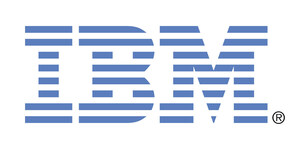
EAST LANSING, Mich., Sept. 7, 2012 /PRNewswire/ -- Michigan State University today announced a new master's degree program in business analytics to help prepare students for the jobs of the future. IBM (NYSE: IBM) is assisting the program with its analytics software and support for experiential projects where students will apply analytics to real-world business problems. The degree includes coursework in the Broad College of Business and the Colleges of Engineering and Natural Science. Further, as part of the university's mission to enhance analytic thinking among all students, plans are underway for undergraduates in the Broad College to participate in the first-ever IBM Watson case study curriculum.
(Logo: http://photos.prnewswire.com/prnh/20090416/IBMLOGO )
The new collaboration between IBM and MSU is part of an ongoing effort to expand and strengthen student skills and understanding of big data and analytics in order to meet the growing demand for highly skilled analytics workers. IBM has begun hosting Watson case competitions and has established project focused classes with universities. IBM has also recently completed the first-ever Watson internship program during which students experimented with new ways the Watson system could be applied to societal challenges.
"Recognizing that a practical understanding of analytics is key for 21st century jobs and firm competitive success, we wanted to be among a group of universities that is truly at the forefront in developing a top-notch curriculum in this area that will launch our graduates into successful careers. These new programs come as a response to demand for students with a greater depth of knowledge in the area of analytics and cognitive computing. Therefore, establishing partnerships with the business community is a priority for the Broad College of Business," explains Stefanie Lenway, Eli and Edythe L. Broad Dean of the Broad College. "Our collaboration with IBM creates opportunities for our students to apply what they learn in the classroom to solve significant business problems and to prepare themselves to hit the ground running when they begin their careers."
Ushering in a New Generation of Thinkers with Case Study Curriculum from IBM Watson
The new program addresses a growing need in the marketplace for analytically savvy business leaders, giving graduates a distinct competitive advantage in the job market. According to the McKinsey Global Institute an estimated shortage of 1.5 million managers and analysts with the expertise to use analysis to make effective decisions is expected by 2018 within the US alone.
Since its historic victory on Jeopardy! last year, IBM Watson ushered in a new era of computing called cognitive systems. This entirely new class of analytical systems are set to transform business decision-making by providing recommendations and actionable insights. By culling through vast amounts of big data, cognitive systems like Watson will help us learn how the world really works and make sense of its complexities. With a combination of natural language processing, hypothesis generation and evaluation, and evidence based learning capabilities, Watson is designed to process information like the human brain and can respond to questions with a certain degree of confidence – learning and becoming more accurate over time.
The new curriculum will align cognitive system computing with the existing business school syllabus through an integrative real-world case study learning experience on the commercialization of Watson. For example, Watson topics in a marketing class could include: How can Watson be applied to personalize the consumer experience? What information would be used to shape the desired outcome? How would marketing resources be realigned?
Required undergraduate courses ranging from Managing Human Resources and Organizational Behavior to Marketing may participate in the program, and as a result, students will gain an understanding how technology like cognitive computing can be put to work in data intensive industries such as health care and financial services. For example students may learn how Watson can look at information from a variety of sources, in the case of healthcare this could include patient records, journal articles, medical history and clinical research to improve the accuracy of diagnoses and treatment or how bankers might improve customer service by looking at vast amounts of financial data, economic forecasts, and client information to personalize banking services allowing for a more personalized experience.
"Given the large amounts of new data created every single minute, analytics skills are no longer just a requirement for the IT professional, they are becoming increasingly important for the business professional as well," said Deepak Advani, vice president, business analytics, IBM. "The business world has steadily seen analytics become one of the most important skills required to prepare our business leaders of tomorrow, and we are so pleased to be working with a top university like Michigan State to help them explore new and innovative ways to bridge business and technical skills together." After completing these new programs, graduates will enter the workforce with a unique set of skills giving them an early advantage as the next era of cognitive computing and analytics continue to impact every facet of business.
The Fine Art of Analytics enters the Broad College of Business
The increase in demand for analytics skills in a variety of disciplines is being driven by companies' need to learn more about their customers, including buying habits and preferences. With the ever-increasing stream of unstructured data from a variety of sources, many organizations are seeking employees who possess data analytics skills to make sense of the data and turn it into actionable business decisions. The U.S. Bureau of Labor Statistics predicts that there will be a 24 percent increase in demand for professionals with management analysis skills over the next 8 years. Regardless of the industry, the ability to use technology to analyze large volumes of data to better understand business challenges can be a significant competitive advantage. Students that understand analytics and how it can be put to work will be better positioned for success regardless of their field of study.
IBM, General Motors, Amazon, Dow Chemical and P&G Converge on Campus to Discuss the Importance of Big Data Skills in Today's Workforce
As part of today's news, IBM and Michigan State University's Broad College of Business hosted a Power of Analytics Symposium on September 6 to announce this collaboration.
IBM and MSU led a panel discussion around The Corporate View on Analytics & Career Paths in Analytics where panelists included business leaders from Dow Chemical, Amazon.com, General Motors and Procter & Gamble.
The work with MSU is part of IBM's Academic Initiative, a program that offers colleges and universities access to the latest advances in technology and business industry expertise. IBM is providing MSU faculty access to curriculum materials, project-focused case studies, and IBM thought leaders as guest speakers to give students hands-on experience with big data. As part of the initiative, faculty can also compete for awards to accelerate program development. Nearly 6,000 universities and 30,000 faculty members worldwide have joined IBM's Academic Initiative over the past seven years.
Resources from IBM's Academic Initiative, a technology curriculum and teaching resource offered to universities free of charge, will be used by Michigan State University faculty in the new degree program. In fact, many of the underlying technologies used in IBM's Watson supercomputer are being made available to universities around the world for teaching and research.
For more information about IBM Business Analytics, visit http://www-01.ibm.com/software/analytics/
For more information about IBM Watson Solutions, visit http://www-03.ibm.com/innovation/us/watson/
For more information about IBM's university programs, visit http://www.ibm.com/academicinitiative
Michigan State University has been working to advance the common good in uncommon ways for more than 150 years. One of the top research universities in the world, MSU focuses its vast resources on creating solutions to some of the world's most pressing challenges, while providing life-changing opportunities to a diverse and inclusive academic community through more than 200 programs of study in 17 degree-granting colleges.
Media Contacts:
Kristen Dattoli
IBM Media Relations
617.869.4378
[email protected]
Sandra Cameron
Communications Director
Eli Broad College of Business, Michigan State University
517.432.9176
[email protected]
SOURCE IBM






Share this article